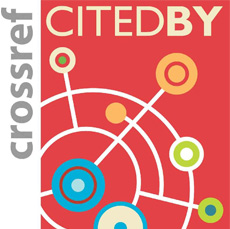ISSN : 2288-5412(Online)
DOI : http://dx.doi.org/10.14354/yjk.2002.18.137
W. B. Yeats’s Literary Ideal: Celtic Twilight
Abstract
The Celtic Twilight School, of which W. B. Yeats was the acknowledged, becamefashionable during the nineties and had considerable influence: its delicateimpressionism, its shadowy themes, other-worldly longings and subtle wavering rhythmswere in accord with the Fin de Siecle Movement.
‘The Celtic Twilight’ of the last decade of the century was no new phenomenon inliterature. It was essentially a re-naming and re-ordering of a familiar trait, the ‘folkspirit’, marked by the heightened passions and superstitions common to all literaturerising from the people, and given new life by the recent scientific studies of folkloreand myth culminating in Sir James Frazer’s The Golden Bough in 1890. In addition, itpossessed a strong tendency towards melancholy which attracted the mystics ofMaeterlinck’s school. But the new elements in ‘The Celtic Twilight’ was a sense ofplace, as opposed to a vague atmosphere. Life and mood became more pointed by theclose relationship between nature and emotion. In a general sense this element of theCeltic spirit could be considered a natural outgrowth of the Pantheism or nature-worshipof the Romantics influenced by the mystics’ renewed interest in Druidism; morespecifically it arose from a self-conscious intellectual attempt to inject fresh life intowell-known themes and develop a new approach to old form.
The symbolist turns from the barren glass of the outer world to the truth embodiedin his own heart. To be brought beyond the limitations of his individual being,however, and into communion with the Great Mind and Memory of the Universe, he needs also a ‘traditional mythology’. Yeats turned for this tradition and mythology tothe legend and folklore of his own country, for like Synge and Lady Gregory hebelieved that Irish peasant was untouched by the materialism and scientific investigationsresulting from the restless Renaissance, that the Irish peasant still maintained contactwith the mystery and imagination that existed before man fell a slave to the externalworld. His search, consequently, was for the traditions which lay buried in peasants’huts and cottages.
Yeats was an Irish poet on one hand, and a poet interested in magic and occult onthe other. Beginning in 1889, he began to integrate his interests and goals, attemptingto become one man - an Irish poet, using Irish subject matter, welding into histechnique and statements the substance of magic and mythology. As a poet withambitions to make a ‘new utterance’, Yeats depended on what he could make of theCeltic past for two main reasons: first, his interests and beliefs had directed him towardfinding a kind of Ur-mythology from the time when he first discovered thecorrespondence between Indian, Hermetic, Theosophic, and Blakean thought; second, andof equal importance, was his position as an outsider in contemporary Ireland, hisposition as an Anglo-Irishman. Yeats turned to pre-Christian Celtic mythology for thebasis of his subject matter both to root his poetry and his own sense of being an Irishpoet; he sought a mythology for his poetry and for himself. And he claimed that theartists through their “contact with the soil”, that is, the folk, could create a nationalliterature, since folklore is “the soil where all great art is rooted”. Then he studied andused magic, visions, profound legends, Celtic mythologies, poetic traditions, folklore, andhistory of the Celtic past to make ‘the old culture of Celtic Ireland’ and ‘exaltation oflife itself’ come alive and reaffirm the power of imagination and hope.
Accordingly his poetry of ‘The Celtic Twilight’ is an affirmation of folklore andmythology. Folklore and mythology are the tools with which to open the Celtic past,make it present, and thus create a great art rooted in the soil of Folk-belief. Folklorewas in Yeats’s eyes the perfect expression of the intermediate world in which gods andmortals met, because the peasants regarded the natural objects around him as signs ofdivine essences. They had, like the ancient Greeks, mythologized their ‘haunted’surroundings in stories passed on to many later generations through an oral tradition, thus not only preserving the truth about the divine reality, but also producing a heritagestill applicable to everyday life.
Yeats claimed that Ireland had created ‘the most beautiful literature of a wholepeople that had been anywhere since Greece and Rome’, while English literature is ‘yetthe literature of a few’. The reason was that ‘Irish stories had been made to be spokenor sung’, while English literature ‘had all but completely shaped itself in theprinting-press’. Therefore Yeats’s literary ideal was to bridge the written and unwrittentraditions, to establish a learned literary tradition on emotions that came from the heartof the people, and so create from the shock of new material and from a tradition thathad never found expression in sophisticated literature a new style, a new mood of thesoul.
In his poetic career he has sought out an ‘image that blossoms a rose’ deep in theheart, an image that makes ‘all nature murmur in response if but a single note betouched’, and has created a literature that ‘taps the secret spring of all our lives’ andachieves the enduring beauty of great art.
예이츠의 문학적 이상: 켈트의 황혼
초록
-
-
Submission : JAMS
https://yjk.jams.or.kr/
-
YSK
The Yeats Society of Korea
-
Editorial Office
Contact Information- Tel: +82-2-2220-4477
- E-mail: ilhwan_y@hanyang.ac.kr -

-

-

-

-

-





